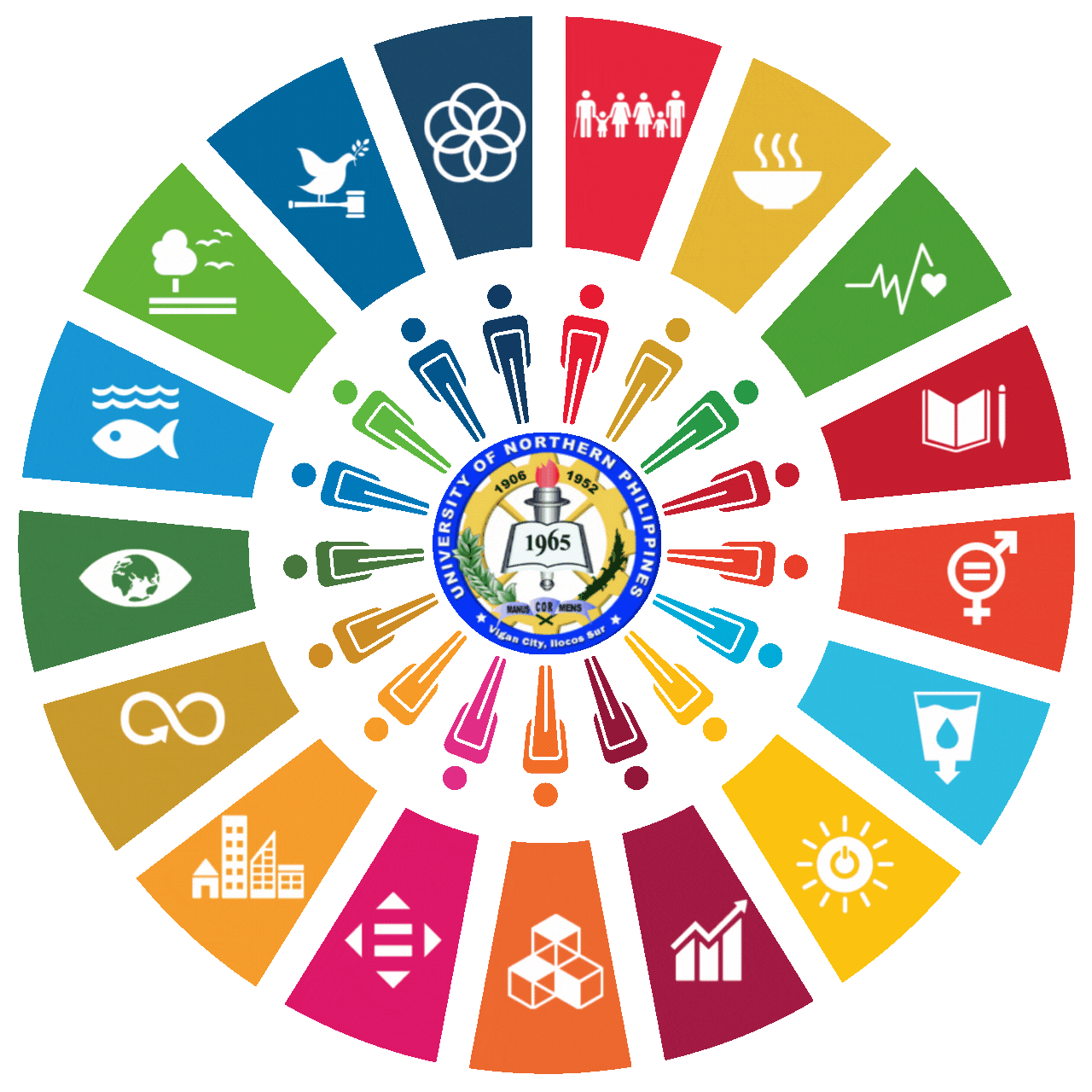

SDG 5 - GENDER EQUALITY
The University of Northern Philippines (UNP) demonstrates a strong commitment to Sustainable Development Goal 5: Gender Equality through its comprehensive approach to gender mainstreaming, and women’s empowerment.
Proponents: Triffany Prudence S. Martin and Francis Don L. Nero
Abstract: Introduction: Indigenous Peoples (IPs) experience unique and persistent health disparities, with limited access to healthcare posing significant challenges. The Tingguian IPs in Abra, Philippines, represent a vulnerable group whose healthcare barriers include geographic isolation, financial constraints, and cultural exclusion. Objectives: This study investigates Tingguian health perceptions, common health issues, and healthcare utilization patterns. Methods: Using a descriptive-correlational approach, data from 318 Tingguian adults were analyzed to assess socio-demographic profiles, health status, healthcare access, and utilization. Results: Most participants rated their health as “Good,” with respiratory illnesses prevalent. Access issues were linked to income and distance from facilities, and factors like age and income significantly influenced health perceptions and service use. Conclusions: Findings underscore the need for culturally appropriate, accessible healthcare initiatives that address the structural and socio-economic factors limiting IP healthcare access. Tailored interventions could improve health outcomes and equity.
Proponents: Rikaela A. Tabudlo, Kathleen Joy R. Pingen, Crystell T. Jaquias, Alyssa Jane Erika I. Ibañez, Mary Ann G. Fernandez and Mercedes P. Anicas
Abstract: Background: Adolescent motherhood in underserved areas increases risks of anxiety, depression, and stress, impacting both maternal adjustment and child development. This study examined psychological challenges and coping strategies during the postpartum period of teenage mothers in a coastal community in Ilocos Sur, Philippines. Objectives: To examine postpartum psychological challenges and coping strategies during the postpartum period of teenage mothers in a coastal community in Ilocos Sur, Philippines. Methods: This descriptive-correlational study surveyed 100 teenage mothers (ages 13-19) in coastal a community in Ilocos Sur, Philippines, assessing socio-demographics, psychological well-being (anxiety, stress, depression, self-esteem), and coping strategies using stratified purposive sampling. Results: Findings showed moderate levels of psychological distress, with anxiety and stress most prominent. Coping strategies included social support, religious practices, and diversionary activities. Socio-demographic factors such as education and family income significantly affected mental health and coping efficacy. Conclusions: This study highlights the need for targeted mental health support and community resources to ease adolescent mothers' psychological burdens, stressing the role of socio-economic stability and family support.
Proponents: Gerald R. Severino, Elmer T. Cabatic and Mico M. Molina
Abstract: Play is essential to childhood development, fostering physical, emotional, cognitive, and social growth. However, the role of parents in facilitating and perceiving the developmental benefits of play remains underexplored. This study explored parents' perceptions of the role of play in their children's development, focusing on physical, emotional, cognitive, and social domains. Conducted from December 2021 to March 2022, the research utilized a descriptive-quantitative design and involved 50 parents of children aged 4–7 from Cabugao and Narvacan, Ilocos Sur. Data were collected using a researcher-made questionnaire and analyzed through frequency and percentage. Results revealed that children engaged in various play activities, such as chasing bubbles, imaginative role-play, and building blocks, which parents observed to enhance motor skills, emotional resilience, problem-solving abilities, and social interactions. Parents emphasized providing opportunities for unstructured, child-led play to support holistic development. The study recommends that educational institutions and healthcare professionals conduct workshops for parents and caregivers on the developmental benefits of play. Additionally, future research should explore children's direct experiences to validate and complement parental observations.
Keywords: Role of Play, Children, Development, Parents, Descriptive-Quantitative, Ilocos Sur


















